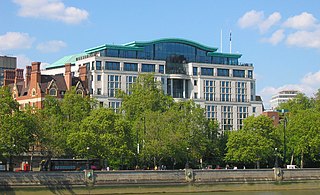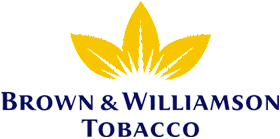Related Research Articles

The tobacco industry comprises those persons and companies who are engaged in the growth, preparation for sale, shipment, advertisement, and distribution of tobacco and tobacco-related products. It is a global industry; tobacco can grow in any warm, moist environment, which means it can be farmed on all continents except Antarctica.

Ibadan is the capital and most populous city of Oyo State, in Nigeria. It is the third-largest city by population in Nigeria after Lagos and Kano, with a total population of 2,649,000 as of 2021, and over 3 million people within its metropolitan area. It is one of the country's largest cities by geographical area. At the time of Nigeria's independence in 1960, Ibadan was the largest and most populous city in the country, and the second-most populous in Africa behind Cairo. Ibadan is ranked one of the fastest-growing cities in sub-Saharan Africa, according to the UN Human Settlements Program (2022). It is also ranked third in West Africa in the tech startups index. Ibadan joined the UNESCO Global Network of Learning Cities in 2016.

British American Tobacco p.l.c. (BAT) is a British multinational company that manufactures and sells cigarettes, tobacco and other nicotine products including electronic cigarettes. The company, established in 1902, is headquartered in London, England. As of 2021, it is the largest tobacco company in the world based on net sales and the third largest seller of vapes in the UK.

The American Tobacco Company was a tobacco company founded in 1890 by J. B. Duke through a merger between a number of U.S. tobacco manufacturers including Allen and Ginter, Goodwin & Company, and Kinney Brothers. The company was one of the original 12 members of the Dow Jones Industrial Average in 1896. The American Tobacco Company dominated the industry by acquiring the Lucky Strike Company and over 200 other rival firms. Federal Antitrust action begun in 1907 broke the company into several major companies in 1911.

Brown & Williamson Tobacco Corporation was a U.S. tobacco company and a subsidiary of multinational British American Tobacco that produced several popular cigarette brands. It became infamous as the focus of investigations for chemically enhancing the addictiveness of cigarettes. Its former vice-president of research and development, Jeffrey Wigand, was the whistleblower in an investigation conducted by CBS news program 60 Minutes, an event that was dramatized in the film The Insider (1999). Wigand claimed that B&W had introduced chemicals such as ammonia into cigarettes to increase nicotine delivery and increase addictiveness.

Imperial Brands plc is a British multinational tobacco company headquartered in London and Bristol, England. It is the world's fourth-largest international cigarette company measured by market share after Philip Morris International, British American Tobacco and Japan Tobacco and the world's largest producer of fine-cut tobacco and tobacco papers.

Osun State, occasionally known as the State of Osun by the state government, is a state in southwestern Nigeria; bounded to the east by Ekiti and Ondo states for 84 km and for 78 km respectively, to the north by Kwara State for 73 km, to the south by Ogun State for 84 km and to the west by Oyo State, mostly across the River Osun. Named for the River Osun—a vital river which flows through the state—the state was formed from the southeast of Oyo State on 27 August 1991 and has its capital as the city of Osogbo.

Iseyin is a city located in Oyo, Nigeria. It is approximately 100 km (62 mi) north of Ibadan. The city was estimated to have a population of 236,000, according to United Nations 2005 estimate, which increased to 362,990 in 2011, and has a total land mass of 2,341 km2 (904 sq mi). Its inhabitants are mostly of Yoruba origin and its ruler is the Aseyin of Iseyin, with the current being Oba Sefiu Oyebola Adeyeri III, Ajirotutu I.
The United Africa Company of Nigeria is a Nigerian publicly listed company based in Lagos. Its areas of operation include manufacturing, services, logistics and warehousing, agricultural and real estate. UACN's food operations include UAC Franchising, UAC Restaurants and UAC Dairies. It also has equity stake in UACN Property Development Company, a quoted firm, CAP Plc, makers of Dulux paints and Portland Paints, manufacturers of Sandtex paints.

Tekel A.Ş. was a Turkish tobacco and alcoholic beverages company. It was nationalised in 1925 from a parastatal company, the Régie. A joint foreign and Ottoman consortium, the Régie was short for "La Société de la régie co-intéressée des tabacs de l'Empire Ottoman".
The Rev. Dr. Solomon Adeniyi Babalola was a Nigerian Baptist pastor who lived and served in Nigeria, Ghana, Canada, and the United States. Born in Oke-Ila Orangun, Nigeria, he graduated from his initial pastoral training in December 1949 from the three-year theology course of the Nigerian Baptist Theological Seminary, Ogbomosho. He is reputed to be one of the two youngest Nigerian nationals ever recruited into the ministry by American missionaries, during a late-1940s drive led by Seminary President Dr. J.C. Pool, assisted by indigenous pastors. Babalola was consecrated as a Baptist trained pastor at the age of 20.
Aderemi Waheed Babalola is a banker and former minister of the Federal Republic of Nigeria.
About a quarter of adults in Turkey smoke. Smoking in Turkey is banned in government offices, workplaces, bars, restaurants, cafés, shopping malls, schools, hospitals, and all forms of public transport, including trains, taxis and ferries. Turkey's smoking ban includes provisions for violators, where anyone caught smoking in a designated smoke-free area faces a fine of 188 Turkish lira (~€9.29/$9.90/£8.22) and bar owners who fail to enforce the ban could be fined from 560 liras for a first offence up to 5,600 liras. The laws are enforced by the Ministry of Agriculture and Forestry of Turkey.

Isiaka Abiola Adeyemi Ajimobi was a Nigerian politician who served as governor of Oyo State from 2011 to 2019, he was the first person elected to the office twice.
The following is a timeline of the history of the city of Ibadan, Oyo State, Nigeria.
Cocoa production is important to the economy of Nigeria. Cocoa is the leading agricultural export of the country and Nigeria is currently the world's fourth largest producer of cocoa, after Ivory Coast, Indonesia and Ghana, and the third largest exporter, after Ivory Coast and Ghana. The crop was a major foreign exchange earner for Nigeria in the 1950s and 1960s and in 1970 the country was the second largest producer in the world but following investments in the oil sector in the 1970s and 1980s, Nigeria's share of world output declined. In 2010, cocoa production accounted for only 0.3% of agricultural GDP. Average cocoa beans production in Nigeria between 2000 and 2010 was 389,272 tonnes per year rising from 170,000 tonnes produced in 1999.
Tejumade Alakija was a Nigerian civil servant who rose to be the first female head of Oyo State's civil service.

Peter Stuyvesant is a brand of cigarettes currently owned by British American Tobacco and manufactured by the American Cigarette Company. In Australia and New Zealand, the brand is manufactured by Imperial Tobacco. The cigarette brand is named after Petrus Stuyvesant, Director General of New Netherland, later New York State, New Jersey, Delaware and parts of surrounding states.
Moshood Olalekan Balogun was a Nigerian monarch. He was the 42nd Olubadan of Ibadan.
References
- 1 2 3 Awojinrin, Joseph Funmi (1974). British direct investment and economic development in Nigeria, 1955-1972 (Ph.D. thesis). Keele University.
- ↑ Peter., Kilby (2008). Industrialization in an open economy : Nigeria, 1945-1966. Cambridge: Cambridge University Press. p. 81. ISBN 978-0521084017. OCLC 717080331.
- ↑ Gann, Lewis H. (1969–1975). Colonialism in Africa, 1870-1960 . London: Cambridge U.P. pp. 341. ISBN 0521073731. OCLC 50265.
- 1 2 Coppock. "Tobacco Growing in Nigeria".
{{cite journal}}: Cite journal requires|journal=(help) - ↑ Babalola, Ademola (1987). "Agro-Industrial Tobacco Production and Farmers in Igboho, Oyo-North Division, Oyo State, Nigeria". Africa Development: A Quarterly Journal of CODESRIA. 12 (4): 109–122. ISSN 0850-3907.
- ↑ Babalola, Ademola (2007). "BAT and the penetration of capital into Oyo state". Journal Review of African Political Economy. 19 (53): 96–101. doi: 10.1080/03056249208703944 .
- ↑ "A Money Market and a Stock Exchange". Financial Times. December 29, 1960.